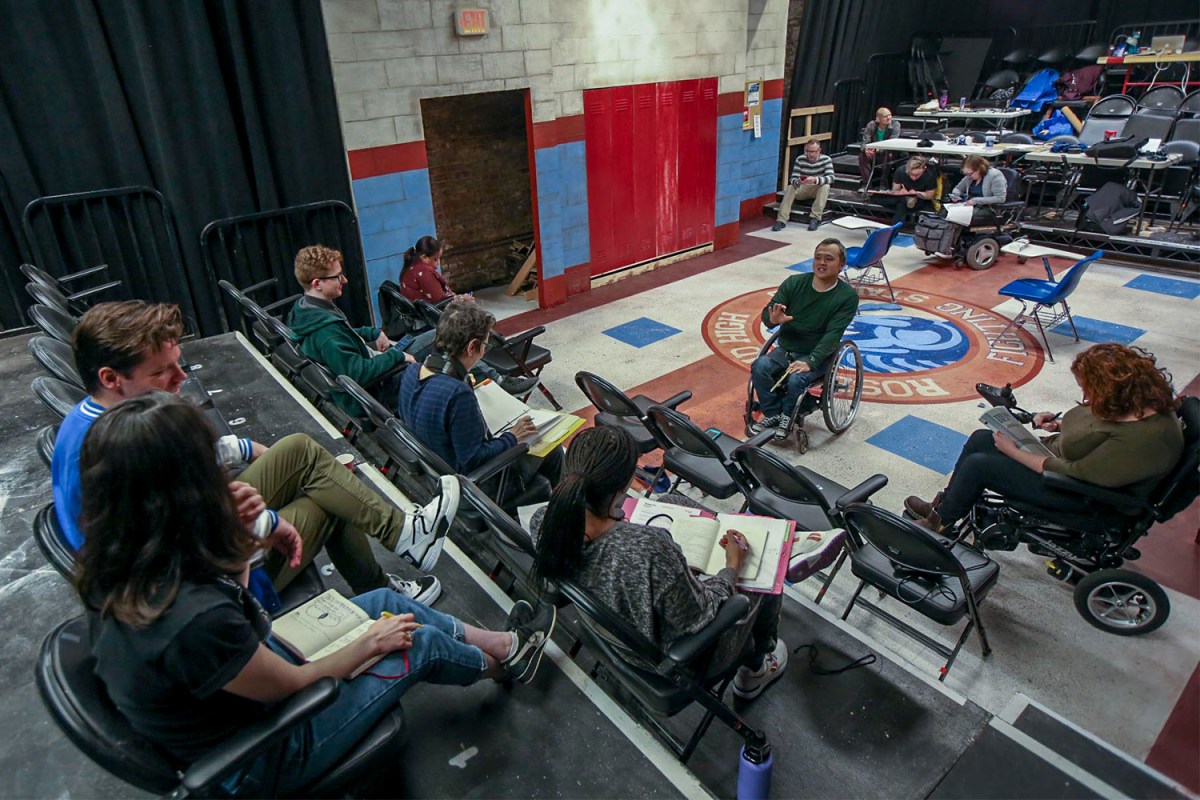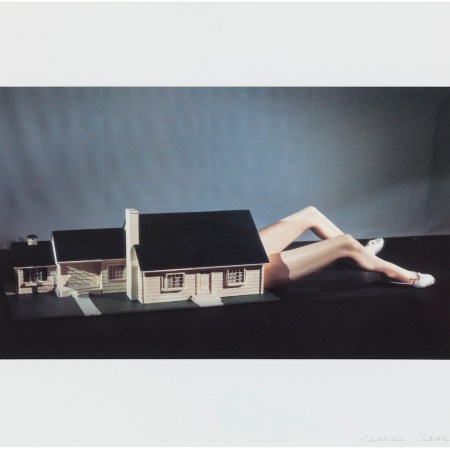On Thursday, April 2 — three weeks after Broadway first went dark due to coronavirus restrictions, and one week before the theatrical capital of the world announced an extended shutdown — I went to the theater again.
I bought my ticket for an 8 p.m. performance. I showed up 10 minutes early and grabbed myself a drink at the insistence of the artistic director, who also gave me an exclusive tour of the space (and even introduced me to the play’s director). I was shown to my seat. And when it was all over, the cast and my fellow audience members engaged in a classic post-show discussion, filled with both lively conversation and awkward pauses.
The only difference? I did it all from my couch.
The show in question was Theater Wit’s production of Teenage Dick, a bold reimagining of Shakespeare’s Richard III by Mike Lew that sets the action in a modern high school and brings Richard’s disability (and the disabled community) to the forefront. Originally intended for a six-week run in their small Chicago theater, the play is now available online for remote viewing after coronavirus mandates forced them to stop live performances. The initiative has been so successful that on Wednesday they announced a two-week extension.
The team at Theater Wit find themselves in a moment of having greatness thrust upon them (to borrow from another Shakespearean work). Their original intent was simply to stage an area premiere, but now, in the middle of the COVID-19 pandemic, the company has become an unlikely leader showing the rest of the theater community how to capture the magic of their art and disperse it digitally.
“It’s not so much that I want you to see the play, but I want you to have an evening at the theater,” Theater Wit’s founder and Artistic Director Jeremy Wechsler tells InsideHook.
That is a conundrum everyone from Tony Award winners to community theaters have been trying to solve in the past few weeks. While other art forms have found varying success in this current quarantine era, from releasing movies straight to streaming to performing concerts on Facebook Live, the theater has had a harder go of it.
Yes, there are filmed versions of stage productions available online. Netflix has recordings of Bruce Springsteen’s Broadway show, Nick Kroll and John Mulaney’s Oh, Hello, even Shrek The Musical. Amazon recently added Phoebe Waller-Bridge’s stage version of Fleabag. Universal is bringing full-length Andrew Lloyd Webber shows to YouTube. And there’s even a theater-specific streaming website called BroadwayHD that recently hosted an online viewing party of the National Theatre’s 1999 production of Oklahoma!, starring Hugh Jackman, in partnership with the Rodgers & Hammerstein Organization.
But none of these recordings come close to capturing the essence of what makes theater an essential art. Two-time Pulitzer Prize winning playwright Lynn Nottage put it this way on Twitter: “I love that theaters are getting creative about streaming live performances, but somehow the experience always feels a little like eating food without being able to fully taste it. I miss the visceral experience of sharing emotions with an audience.”
Theater Wit’s Wechsler would probably agree, but with the remote-viewing experience he and his team have cooked up, he is coming closer than almost anyone else to that full flavor Nottage is craving.
“The difference between the way we’re doing it and most of the other companies is we’re really trying to replicate that experience, because that’s the thing I think that’s important,” said Wechsler. “The theater, no matter what play we’re doing, is always selling community and a chance for the culture to look at itself together. It’s the togetherness that we have to focus on, not just the play.”
While Theater Wit details the remote viewing process on their website, here’s how it works in a nutshell:
Tickets are for sale at the normal times (8 p.m. Central Thursday, Friday and Saturday, and 2:30 p.m. for Sunday matinees), but they’re only selling 98 digital seats each time (which is why some performances are sold out). About 10 minutes before the show starts, you’ll get a link and password to a recording on Vimeo, and before the show, you can watch the aforementioned video of Wechsler giving a tour of the theater. The recording will be available for 12 hours, but try and start it at the designated time, because immediately following the play there will be a link to a GoToMeeting video chat where the cast and creative team, as well as any interested theatergoers, will participate in a post-show discussion.
While the act of watching the performance doesn’t include the immediate “visceral experience of sharing emotions with an audience,” as Nottage mentions, a good portion of it is captured in the discussion, if you take a chance on it and participate.
“One reason I wanted to do a post-show discussion after every show is that we’re all kind of craving the company of strangers. We’re all sitting with our family or our girlfriends or roommates or whatever, but we’re not running into strangers,” said Weschler. “Humans are social animals. My theory was that people are going to want to talk to other people and get other ideas inserted into their space. And so I love it when a bunch of people have video cameras and you can see all these faces peering at each other and enjoying the experience of being in a room full of strangers.”
For me, opening up the GoToMeeting portal and coming face-to-face with all the actors I had just seen laughing, shrieking, fighting and soliloquizing on stage was disorienting. When someone posted in the chat, I was so caught up in the moment that I misread their comment and quickly tapped out a response … even though the other poster was clearly addressing the Theater Wit team. I thought about logging off, but even the slight embarrassment was thrilling — this kind of social interaction wasn’t something I had experienced in weeks. The other viewers — some who had video enabled, some who were audio only — seemed to be on the same page, all jittery and animated after an unexpected night at the theater.
This is the “togetherness” that Weschler is talking about, the one that is going to become more essential as quarantine continues and people find themselves yearning for a more fulfilling artistic experience, one that prioritizes human interaction over passive consumption.
I think it’s important that theaters not try to turn themselves into miniature television studios. There’s a whole industry that does that and they’re quite good at it.
Jeremy Wechsler, Founder and Artistic Director of Theater Wit
As for this specific production, Wechsler said on April 3 that it had been seen by people in 35 states and five countries, and they’ve sold out multiple productions. While they’ve already had one extension, there’s always the possibility the show will run even longer (as long as they can keep paying the cast and crew, which Theater Wit has done). But in terms of extending the online experience to other shows — say if social distancing guidelines lessen, but theaters are still closed — Wechsler is open to the idea, but not 100% sold just yet.
“I mean, theater is kind of make believe, but the mechanics of it are all absolutely grounded in super pragmatic reality,” he said. “We have to wait until reality tells us what it is, and then we can adapt.”
This article was featured in the InsideHook Chicago newsletter. Sign up now for more from the Windy City.
























